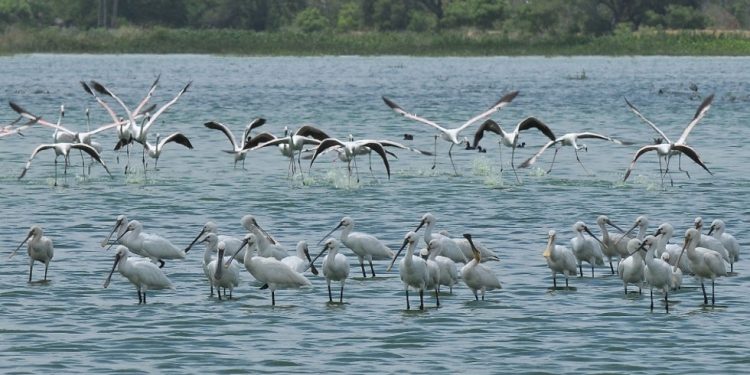Environmentalists have stressed the need to decrease light pollution to preserve migratory birds.
This is contained in a statement signed by the Nigerian Conservation Foundation (NCF) Head of Communications, Mr Oladapo Soneyeby, recently at the end of an event hosted to mark the World Migratory Bird Day in Lagos.
Dr Soladoye Iwajomo, Senior Lecturer, Department of Zoology, University of Lagos, stated that light pollution alters the natural pattern of light and dark in ecosystems.
According to him, light pollution is often caused by the way the light is emitted from lighting equipment.
He said that “choosing the proper equipment and carefully mounting and aiming would make a significant difference.”
On his part, Mr Abdulmalik Ogizi, who represented the Federal Ministry of Environment, said that migratory birds fly hundreds of thousand kilometres to find the best ecological conditions and habitats for feeding, breeding, and raising their young ones.
Mr Ogizi further said that “when conditions at breeding sites become unfavourable, it is time to fly to regions where conditions are better.
“The phenomenon is accompanied by several anthropogenic, political, and environmental challenges on the migratory bird’s survival and conservation”.
He said that the 2022 campaign highlights the impacts of the increase but underestimates the threat of light pollution on migratory birds.
Mr Ogizi noted that artificial light was increasing globally by at least two per cent per year with an adverse effect on bird species.
He said that “light pollution is a significant threat to migratory birds, causing disorientation when they fly at night, leading to collisions with buildings, increasing their vulnerability as prey to other animals perturbing their internal clocks, or interfering with their ability to undertake long-distance migrations.”
The NCF’s Species Programme Lead, Dr Stella Egbe, said that the world comes together to celebrate and raise awareness of the beauty and threats of migratory birds twice every year.
She said that seasonal activity is an important event that ensures the survival of lots of bird species.
Dr Egbe further said that “every year, ornithologists and conservation biologists study birds in all types of environments globally, monitoring their numbers and diversity.
“In recent years, it has been observed that species are declining rapidly, driving species to the brink of extinction.
“From habitat loss, indiscriminate killing and trade in birds, plastic pollution, birds are increasingly exposed to factors within the environment that they have not adapted to.
“It has been discovered that some adult birds are being harvested, which will prevent reproduction. This will cause a general decline in the population of birds.”

